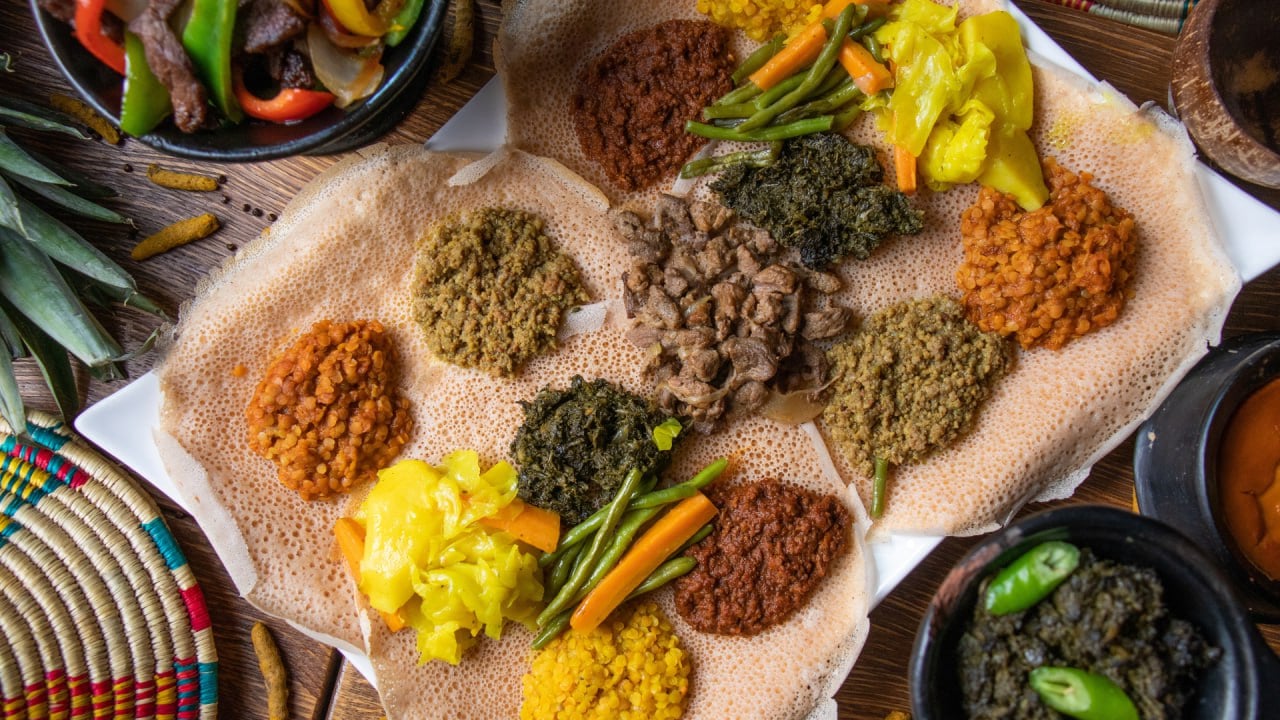The study, published in Frontiers in Microbiology, has been led by Darwin Bioprospecting and I2SysBio from the Science Park, in collaboration with entities from Ethiopia and Ecuador
A multidisciplinary team with prominent participation of two entities located in the Science Park of the University of Valencia (PCUV) has conducted the first comprehensive study on microbial diversity present in traditional foods and fermented beverages from Ethiopia. The work, recently published in the journal Frontiers in Microbiology, has been led by the company Darwin Bioprospecting Excellence S.L., located in the business area of the Park, next to the Institute of Integrative Systems Biology (I2SysBio, UV-CSIC), located in its research area, and in collaboration with the University of Wolaita Sodo (Ethiopia) and the Ecuadorian company Quiitos S.A.S.
Research reveals the importance of traditional knowledge about fermentation and connects it with the most advanced tools of modern microbiology, with the aim of identifying beneficial bacteria that can be used in fields such as functional food, biotechnology and human health.
Rediscovering the microbial biodiversity of ancestral foods
Ethiopia has an enormous wealth of artisanal fermented products, which are a fundamental part of its diet and cultural heritage. However, their microbial base was still largely unknown. In this context, the scientific team designed a comprehensive study that combined techniques of genetic sequencing (metataxonomy), isolation and strain culture (culturomy) and physico-chemical analysis to describe in detail the microbial communities present in nine traditional foods: two solid products (kotcho e injera), a condiment (datta) and six fermented beverages (tej, tella, cheka, kinito, borde and shamita).
The results show a great microbiological heterogeneity between products, which reflects both the variety of ingredients and processes as well as the ecosystem richness of spontaneous fermentations. Almost all of the foods tested showed a domain of Firmicutes phylum bacteria, especially lactobacilli and other lactic bacteria (LAB), widely known for their ability to improve digestibility, preserving food and generating compounds with probiotic effect.
Differentiated microbial profiles and strains with functional potential
Each product showed a specific bacterial profile. In the injera, for example, Lactobacillus predominated, exceeding 60% of all bacteria identified, while in beverages such as tej, the microbial ecosystem was dominated by Zymomonas mobilis, a sugar-fermenting bacteria that also generates ethanol and prebiotic compounds. On the edge, however, a strong presence of Levilactobacillus spicheri and L. zymae was detected, species that can synthesize GABA (γ-aminobutyric acid), a metabolite with neurophysiological implications.
"The tej particularly surprised us by the almost complete dominance of Zymomonas mobilis, which shows that some of these traditional products can be a natural source of strains with unique technological properties," says Carmen Sanz, Director of the Department of Health & Nutrition, researcher at Darwin Bioprospecting and one of the authors of the article.
Each traditional Ethiopian fermented food hosts a unique microbial profile, with species that could have applications in nutrition, health and biotechnology
Datta, a spicy condiment with a pasty texture, was the food that showed the greatest diversity of species, including bacterial lineages just described as JC017 (Marinilabiliaceae) and representatives of the genus Weissella, with possible applications in plant fermentation or the development of new starters.
In addition to the genomic analysis, the team was able to isolate 79 living strains from laboratory cultures, many of them of interest for the food industry, such as Acetobacter fabarum, Lactiplantibacillus plantarum or Lacticaseibacillus sharpeae. These strains represent a valuable microbial collection that could be used in future developments as controlled fermentations or custom probiotic formulations.
Food security and modernization of traditional practices
Along with the microbiological analysis, physicochemical measurements were made to evaluate characteristics such as pH, sugar content and ethanol levels. Tej was the product with the highest alcohol and sugar content, which could contribute both to its organoleptic profile and to the stability of its microbiota. On the other hand, beverages such as cheka and shamita had very low levels of residual sugars, reflecting a more complete fermentation.
The study also highlights the need to strengthen hygiene practices in the manufacture of these products. In some samples, such as the tej, micro-organisms indicative of environmental or fecal contamination were detected, such as certain strains of the genus Klebsiella. "It is not a question of eliminating or industrializing these traditional practices, but of understanding them thoroughly in order to improve them without losing their essence and cultural value," says Manuel Porcar, researcher at I2SysBio and co-author of the article.
The study has isolated 79 viable bacterial strains, many with probiotic or technological potential for the food industry
An international collaboration from Valencia
The project has demonstrated how collaboration between academic teams and technology-based companies can generate original knowledge with global impact. For Darwin Bioprospecting, the research reinforces its position as a reference in the study of applied microbiomas, and for I2SysBio, it consolidates its line of research in microbial ecology and biotechnology of fermentations.
This work opens up new opportunities to explore the functional biodiversity of traditional foods and lay the foundation for safer, healthier and more sustainable fermented products. It also highlights the importance of preserving local knowledge and integrating it into global food innovation agendas.
Source: Darwin Bioprospecting Excellence
Sanz-López C, Amato M, Torrent D, Borrego M, Anza M, Bibiso M, Grijalva-Vallejos N, Vilanova C, Porcar M and Pascual J (2025) Microbial ecology of selected traditional Ethiopian fermented products. Front. Microbiol. 16:1570914. DOI: 10.3389/fmicb.2025.1570914 https://www.frontiersin.org/journals/microbiology/articles/10.3389/fmicb.2025.1570914/full
--
Recent Posts


